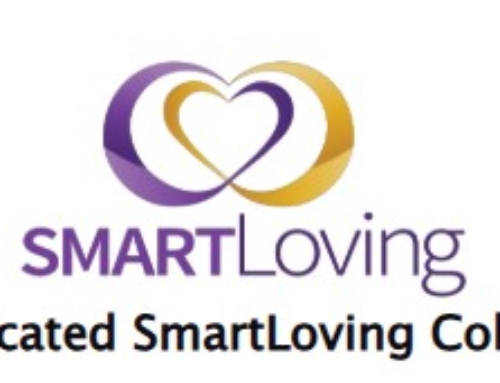Usually conducted over a weekend, the seminar is a series of exercises comprised of:
- input on the topic from a presenting couple,
- private reflection for each participant with the aid of inventories and questions,
- shared couple time, and
- prayer in various formats.
The seminar is a private experience between husband and wife, and there is no group therapy or counselling. Interaction with other cou ples is encouraged during meal breaks and in the follow-up programme.
ples is encouraged during meal breaks and in the follow-up programme.
The exercises follow a careful sequence designed to lead couples through education, self-discovery, self-disclosure (with spouse) in a process of deeper intimacy and empowerment. Four Key Phases direct this process:
Phase 1: Motivation and re-awakening of hope
This is primarily accomplished through the revisiting of romantic memories and articulation of their barriers to having greater ambition for their marriage. Topics addressed in this section include:
- Exploration of God’s Dream (using Genesis 1)
- Defining terms (sexuality, masculinity, femininity, passion, lust)
- Introduces ‘Sexual Atmosphere’ (differentiates sexuality and genitality)
This introductory phase also provides some ‘Rules of Play’ – a concise communication framework designed to make the couples’ exchange safe and effective throughout the seminar.
Phase 2: Overcoming Obstacles to Intimacy
In this phase two topic areas are addressed: formation and trust. This is followed by a process of reconciliation and healing.
- Formation – is an examination of our attitudes, behaviours and expectations primarily from our family of origin, but also previous romantic partnerships, and the culture. The particular focus is on understanding sexual roles and responsibilities, sexual hurt and emotional injuries to one’s sexual self-identity.
- Trust – looks at the pattern of interaction between the couple and the power plays of control and irresponsibility. In particular, the feminine tendency to control the sexual expression of the relationship and the masculine tendency to withdraw from emotional expression is explored in depth. This component is most often the breakthrough session where couples make the biggest gains in self-awareness.
- Reconciliation. The previous sessions usually bring to the surface feelings of deep hurt. The phase culminates in a reconciliation letter to their spouse which is integrated into a Second Rite of Reconciliation. This Second Rite is led by the Facilitating Couple in a prayerful context. Couples are first asked to write their letter and exchange it, asking for forgiveness from their spouse. They are then invited to ‘seal’ their Reconciliation by seeking the Sacrament of the Church. When a priest is not available for the seminar, couples are encouraged to seek Reconciliation in the local parish Church if it is available.
- Anointing. A simple prayer service is conducted to bring the Reconciliation to closure. An Act of Contrition is recited, and prayers for healing offered. Each couple is then invited to sign the cross in oil on the forehead of their spouse as a gesture of closure.
Transition
Following an intensive day of internal processing, Mass and Dinner function as a transition to the next phase.
- Mass.When a private Mass is possible, specifically selected readings reinforce the themes of unity and intimacy and introduce the concept of fruitfulness. Homily notes encourage the priest to make a sincere apology on behalf of the Church for failing to communicate its vision for marriage. This is often a moment which brings some couples to tears and endears the Church to them. When the Readings of the day are used, often one or two of the themes from the notes can usually be incorporated very effectively into the homily. When a private Mass is not available, couples are encouraged to attend mass with the parish.
- Celebration Dinner – provides the much needed ‘light relief’ from the day’s work. Couples share their love stories in detail with their dinner companions, before being sent home to do their homework or ‘penance’ – 15-20 minutes in naked contemplation of their spouse! When dinner is not provided, couples are encouraged to create some down time of their own to debrief the day’s experiences.
Phase 3: Empowerment
In this phase, attention is turned to understanding the resources at our disposal. Picking up the theme of Mass on the previous evening, this component explores the spiritual dimensions of the relationship.
- Sexual Identity – beginning with Song of Songs as inspiration, couples are lead in a process of sexual affirmation for their spouse. Couples are then given the opportunity to discuss any concerns they may have with the physical expression of their love, and to embrace a vision of love which recognizes the holiness of their bodies.
- Spirituality – this exercise explores the spiritual dimensions of the couple’s relationship and discusses how their sexual lovemaking images the inner life of God (ie the relationship of the Trinity). The unitive and procreative dimensions are explored and the ‘Spiritual Exercises’ for married couples are introduced: Prayer for Passion (5 mins daily) and Skin to Skin (20 mins daily). These Spiritual Exercises form the basis of ongoing conversion in the couple and are the key features of the SmartLoving charism.
Phase 4: Mission
In this phase, the notion of Sacrament is examined with the purpose of drawing couples into life-giving generosity to others.
- Sacrament – Using Ephesians 5 as a foundation, the presentation explores the notion of being a Sacrament and the benefits to the couple of being accountable to the Church. The key exercise is a short affirmation session where their dinner (or lunch) companions recount the specific qualities of their relationship that were evident when they recounted their love stories.
- Commissioning – Couples are called to be prophets of love in the Church, to be the Good News for the world. Couples will be invited to become mentors to the engaged. After reflection on the many different ways couples can be life-giving to the Church, the presenting team closes with a prayer of challenge and encouragement.
Phase 5: Follow-Up
Couples are given ongoing support and encouragement through a number of avenues:
- Couple Gatherings are regular meetings of small groups for couples to discuss, share, pray and encourage each other to continue their growth as a couple. Run by SmartLoving couples, these gatherings can be tailored to suit the requirements of the local group. Ideally, these are small groups formed within the parish. The SmartLoving @Home series is the recommended support material. The gathering communities form the foundation of couples to plan and host subsequent SmartLoving initiatives in the parish.
- Couples can subscribe to the SmartLoving blog to receive regular input on Catholic marriage.
- Training for SmartLoving Engaged mentors introduces couples to additional material can be arranged in collaboration with the MRC trainers.
- Couples are encouraged to attend regional renewal events, workshops and the biannual MRC conference.





